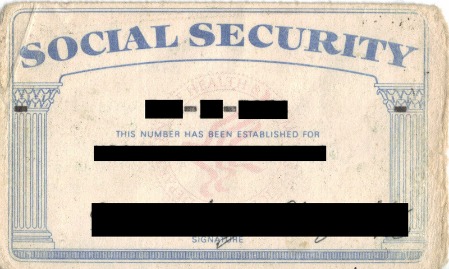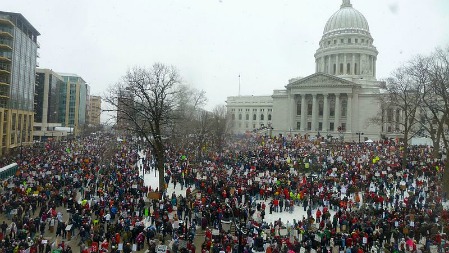
Update 8 AM EDT: Tropical Storm Franklin is born. At this time the system is forecast to pose no threat to land.
Update 5 PM CDT: The NHC now classifies the system shown in the upper left as tropical depression 6. With winds of 35 mph is is only 4 mph away from the 39 mph threshold required to earn the name Tropical Storm Franklin.
Update 3 PM CDT: The National Hurricane Center has upgraded the disturbance at the upper left to a 60% chance of tropical cyclone formation over the next 24 hours. The next two Atlantic storm names in the 2011 list are Franklin and Gert.
Hurricane season officially began weeks ago, but Mother Nature is now delivering. The image above from the National Weather Service shows no less than four disturbance with the indicted possibility of developing into tropical cyclones. The bottom right two represent classic Cape Verde storm systems capable of producing major hurricanes which could threaten the US and the Caribbean.
I worry most about my friends in and around DC. It’s a huge population center and the last time an organized storm clocked the region was Hurricane Isabel. The storm reached category 5 at one point, but weakened and struck the coast of North Carolina as a category 2 on Sep 18. Even so Isabel was the costliest and deadliest storm of the 2003 season. After the record breaking monsters of the 2004 and 2005 seasons, and the catastrophe of Katrina, residents elsewhere may have become complacent about less powerful storms. This is a mistake.
I sat through half a dozen moderate hurricanes a few years ago in Florida including Jeanne, Francis, and Wilma. The latter at one point was the most powerful cyclone ever recorded in the Atlantic Basin, although it weakened considerably before crossing the Florida peninsula and hitting my town. Cat 2 storms are nothing to take lightly. It’s loud! The wind screams and growls, your house will sound like it’s sitting on a driving range, staccato rapid fire as debris smacks in, punctuated by regular bangs shaking the place like a cannon shot as larger chunks crash in. The walls and ceiling breathe, there is no power, no Internet, no phone, no water. Windows are boarded up; you sit in sweltering, humid darkness listening to pieces of house peel off with absolutely nothing to do but contemplate the state of your homeowner’s insurance.
Update from Mr Upright in comments:
I sat through Frances, Jeanne, and Wilma as well (in Jupter, FL). That year I promised my wife I’d start looking for jobs elsewhere. It’s not that we couldn’t handle the storms. We had impressive damage, but fared better than many. It’s because those were *moderate* storms. I didn’t want to be around for an Andrew.
The aftermath is even worse, days without basic utilities, eating out of cans, roads tricky or impassable, forget about showers, you can’t flush the toilet without a bucket of water (So, fill up your bathtub). I remember at one point surveying my backyard after Francis and noticing a frayed powerline drooping off a leaning pole and snaking through the battered yard. It looped right into a giant puddle … which I then noticed with alarm was the same one I happened to be standing in, both barefeet planted solidly in mud. If that line had been live I probably wouldn’t be.
Point being, even a so-called minor storm is potentially dangerous and guaranteed miserable. Should a hurricane take a bead on you this year, it’s best to get the hell out-of-town. If you don’t have someplace inland to go for a few days, make sure you have a good week’s worth of food and water, batteries for the lights, and whatever medicine you might need. And, if it’s a category 3 or higher, don’t kid yourself, these things can kill you a bunch of different ways. Either leave or head for the local storm shelter.






